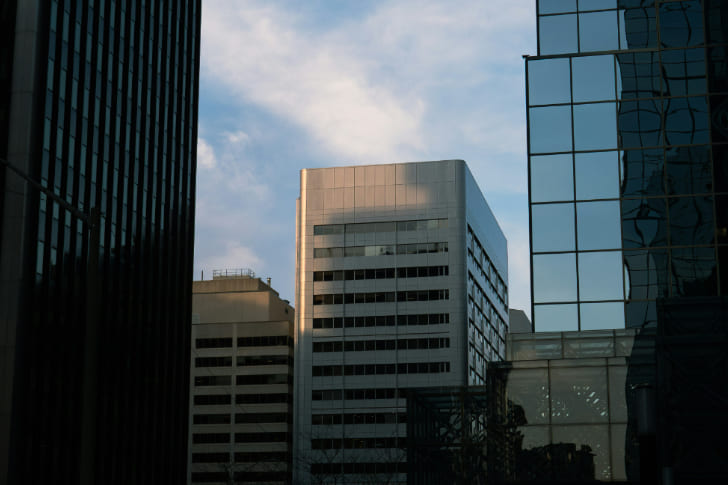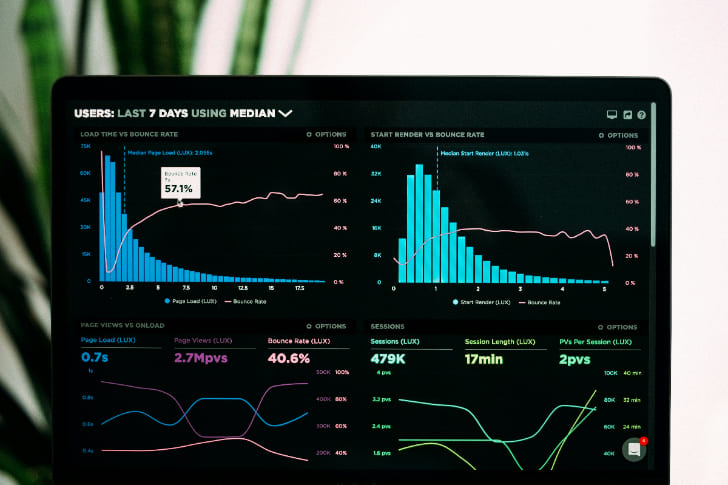Running a business involves many risks—from property damage and lawsuits to natural disasters and employee injuries. Commercial insurance is designed to protect businesses from financial losses, legal liabilities, and operational disruptions. Whether you own a small startup or a large corporation, understanding commercial insurance is essential to safeguard your business’s assets and ensure continuity.

This article explores 10 key things you must know about commercial insurance to make informed decisions and protect your business.
1. Commercial Insurance Protects Your Business Assets
Commercial insurance provides financial protection for your business’s tangible and intangible assets. Policies can cover:
- Physical property, such as office buildings, equipment, and inventory
- Intellectual property, including trademarks and copyrights
- Business interruption losses due to unforeseen events
- Financial losses caused by lawsuits or liability claims
Example: If a fire destroys your warehouse, property insurance can cover the cost to repair the building, replace equipment, and restock inventory, helping your business recover quickly.
Having proper coverage ensures that your business can continue operations even after significant losses.
2. Different Types of Commercial Insurance Cover Different Risks
There isn’t a one-size-fits-all policy for commercial insurance. Businesses need different types of coverage depending on their industry, size, and risk profile. Common types include:
- General Liability Insurance: Protects against claims of bodily injury, property damage, and advertising injuries.
- Property Insurance: Covers damage to buildings, equipment, and inventory.
- Professional Liability (Errors & Omissions) Insurance: Protects against claims of negligence, mistakes, or inadequate services.
- Workers’ Compensation Insurance: Covers employee injuries and medical expenses.
- Business Interruption Insurance: Compensates for lost income due to covered events, such as natural disasters.
- Cyber Liability Insurance: Protects against data breaches and cyberattacks.
- Commercial Auto Insurance: Covers company vehicles and drivers.
Tip: Conduct a risk assessment to identify which coverages are essential for your business.
3. Commercial Insurance Helps You Comply With Legal Requirements
Certain types of commercial insurance are mandatory for businesses. For example:
- Workers’ Compensation: Required in most states for businesses with employees.
- Commercial Auto Insurance: Required for company-owned vehicles.
- Professional Liability Insurance: Required in some professions like law, medicine, or financial services.
Example: A construction company must carry workers’ compensation to cover potential on-the-job injuries for employees. Failure to comply can lead to fines, legal penalties, and business closure.
Ensuring compliance with insurance regulations protects your business from legal and financial risks.
4. Liability Coverage Protects Against Lawsuits
Liability is one of the most significant risks for any business. Commercial insurance protects you if a customer, client, or third party sues for:
- Bodily injury or property damage
- Professional errors or negligence
- Defamation, libel, or slander
- Product liability claims
Example: A client slips in your office lobby and sues your company for medical expenses. General liability insurance would cover legal fees and settlement costs.
Without adequate liability coverage, lawsuits can threaten the survival of even a profitable business.
5. Business Interruption Insurance Ensures Continuity
Natural disasters, fires, or cyberattacks can halt operations, leading to lost revenue. Business interruption insurance compensates for lost income and ongoing expenses, such as rent, payroll, and utilities, while your business recovers.
Example: A hurricane damages your retail store, preventing you from opening for two months. Business interruption coverage can replace lost revenue and cover temporary relocation costs.
This insurance is critical for businesses that rely on continuous operations to stay afloat.
6. Workers’ Compensation Protects Employees and Employers
Employee injuries can lead to significant financial liability. Workers’ compensation insurance covers:
- Medical expenses for workplace injuries
- Lost wages while the employee recovers
- Rehabilitation and retraining costs
Example: A factory worker suffers a hand injury on the job. Workers’ compensation pays for medical treatment and partial wage replacement, reducing legal disputes between employer and employee.
Providing workers’ compensation not only protects employees but also shields your business from costly lawsuits.
7. Cyber Liability Insurance Is Increasingly Important
In the digital age, cyber threats pose a serious risk to businesses of all sizes. Cyber liability insurance covers:
- Data breaches and theft of sensitive customer information
- Ransomware attacks and system restoration costs
- Legal fees related to privacy violations
Example: A hacker breaches your online store and steals customer credit card information. Cyber liability coverage can pay for forensic investigations, notification costs, legal fees, and even ransom payments if necessary.
For businesses that handle customer data or rely heavily on technology, cyber insurance is no longer optional—it’s essential.
8. Commercial Auto Insurance Covers Company Vehicles
If your business uses vehicles for operations—delivery, sales, or service—commercial auto insurance protects against accidents, theft, and liability. Coverage can include:
- Liability for bodily injury or property damage
- Physical damage to vehicles (collision and comprehensive)
- Medical payments for drivers and passengers
Example: A delivery van is involved in a collision while making a delivery. Commercial auto insurance covers vehicle repairs, medical expenses, and liability claims.
Without proper coverage, accidents involving business vehicles can result in substantial financial losses.
9. Premiums Depend on Multiple Factors
Commercial insurance premiums vary based on your business type, size, location, and risk exposure. Factors that influence costs include:
- Number of employees
- Revenue and business size
- Industry risk level (construction vs. consulting)
- Claim history and experience
- Location and property value
Example: A restaurant with a high-risk kitchen environment may pay higher premiums for property and liability coverage than a consulting firm.
Understanding these factors helps businesses budget for insurance and make strategic risk management decisions.
10. Regularly Review and Update Your Policy
Your business needs evolve over time. Regularly reviewing your commercial insurance ensures your coverage keeps pace with changes, such as:
- Expansion of operations or new locations
- Hiring more employees
- Acquiring new equipment or vehicles
- Offering new products or services
Example: A business that adds an e-commerce platform may need cyber liability coverage, even if it was not required before.
Failure to update your policy could leave your business underinsured or exposed to new risks.
Additional Considerations for Commercial Insurance
Beyond the 10 key points, consider:
- Riders and Endorsements: Customize your policy with additional coverage for high-value items, specialized equipment, or unique risks.
- Risk Management Programs: Insurers may offer training or safety programs to reduce risk and lower premiums.
- Claims Handling Reputation: Choose insurers with a history of efficient and fair claims processing.
- Bundling Options: Bundling multiple policies with the same insurer can lead to cost savings.
- Business Continuity Planning: Combine insurance coverage with emergency planning to minimize operational disruptions.
Tip: A proactive approach to risk management complements commercial insurance and strengthens overall business resilience.
Benefits of Commercial Insurance
Commercial insurance offers numerous advantages:
- Financial Protection: Covers unexpected events that could otherwise bankrupt a business.
- Legal Protection: Shields against lawsuits, regulatory fines, and liability claims.
- Peace of Mind: Allows business owners to focus on growth and operations instead of worrying about unforeseen risks.
- Compliance: Ensures your business meets legal and contractual requirements.
- Customizable Coverage: Policies can be tailored to meet specific business needs and industry risks.
Example: A law firm faces a malpractice lawsuit. Professional liability insurance covers legal costs, court fees, and potential settlements, allowing the firm to continue operating without financial devastation.
Common Misconceptions About Commercial Insurance
- “My business is too small; I don’t need insurance.”
Even small businesses face risks like liability claims, property damage, or employee injuries. - “Liability coverage is enough.”
Liability alone doesn’t cover property damage, business interruption, or cyber threats. - “Insurance is too expensive.”
Premiums vary, and policies can often be customized to fit your budget while providing essential protection. - “I’m careful; accidents won’t happen.”
Unforeseen events, human error, or natural disasters can impact any business.
Choosing the Right Commercial Insurance Policy
When selecting a policy, consider:
- Your business’s size, industry, and risk exposure
- Required coverage types for compliance and operations
- Premium costs relative to your budget
- Deductibles and coverage limits
- Insurance company reputation and customer service
Tip: Work with an experienced insurance broker or agent who can assess your risks, recommend coverage, and help you navigate complex policies.
Conclusion
Commercial insurance is a cornerstone of business risk management. From liability protection and property coverage to workers’ compensation, cyber liability, and business interruption, insurance safeguards your assets, employees, and financial stability.
By understanding the 10 critical aspects of commercial insurance, you can make informed decisions, ensure compliance, and protect your business from unexpected events that could jeopardize its future.
Key Takeaways:
- Commercial insurance protects your business assets.
- Different types of coverage address different risks.
- Some insurance is legally required depending on your industry.
- Liability coverage protects against lawsuits.
- Business interruption insurance ensures continuity after disasters.
- Workers’ compensation protects employees and employers.
- Cyber liability is essential in today’s digital environment.
- Commercial auto insurance covers company vehicles.
- Premiums depend on business size, industry, and risk exposure.
- Policies must be reviewed and updated regularly.
A well-designed commercial insurance strategy combines coverage, risk management, and proactive planning, giving business owners the confidence to operate and grow without fear of catastrophic financial loss.









Leave a Reply